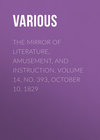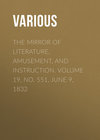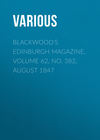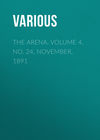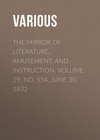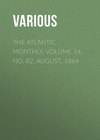Loe raamatut: «The Mirror of Literature, Amusement, and Instruction. Volume 14, No. 393, October 10, 1829», lehekülg 5
SPIRIT OF THE PUBLIC JOURNALS
RECOLLECTIONS OF AN OLD FAVOURITE
"In his wine he would volunteer an imitation of somebody, generally of Incledon. His imitation was vocal; I made pretensions to the oratorical parts; and between us, we boasted, that we made up the entire phenomenon."
LEIGH HUNT'S BYRON.
"Of Incledon? poor Charles Incledon!" said I, turning to his portrait in the "Storm," hanging in goodly fellowship with a few of the idols of my theatrical days, Siddons, Kemble, Bannister, Mrs. Jordan, and G. Cook, in my little book-room—"Poor Charles Incledon! The mighty in genius, the high in birth, the conceited in talent, have not forgotten thee, then—and will even condescend to imitate thee, to imitate thee who wast inimitable!" I arose and walked about my little sanctum in meditative mood. The days of old came o'er me—the benefit nights—the play-bills, with the "Storm," "Black-eyed Susan," &c. in the largest type, as forming the most attractive morceaux in the bill of fare. Then followed the squeeze in June! through that horrid passage in the old Covent Garden Theatre!—then the well-earned climax—Incledon in blue jacket, white trousers, red waistcoat, smart hat and cane—the representative of Britain's best defenders, in holiday garb—unaccompanied by orchestra or instruments, depending upon naught but "the human voice divine," after his usual walk before the lights, and repeatedly licking his lips, (as if he thought that the sweet sounds which were accustomed to flow from them must leave honey behind),—rolling forth with that vast volume of voice, at once astonishing and delightful—"All in the downs the fleet lay moored;" and then followed the strain of love, manly love and constancy, in the beautiful language of Gay, and in tones so rich, so clear, so sweet! every faculty was absorbed in the sense of hearing! the hair seemed to rise, the flesh to stir! the silence of the audience was holy—they durst not, they could not, even applaud that which so enchanted them, for fear of losing a note—I really think I could have struck any one who could have shouted a "bravo!"—Never were Milton's lines,
"Soft Lydian airs
Married to immortal verse,
Such as the meeting soul may pierce
In notes, with many a winding bout
Of linked sweetness long drawn out,
With wanton heed and giddy cunning;
The melting voice through mazes running,
Untwisting all the chains that tie
The hidden soul of harmony."
so illustrated as in the last line of Gay's "Black-eyed Susan,"—
"Adieu, she cried, and waved her lily hand,"
as sung by Incledon in his prime.
'Tis strange! here was "a voice that hath failed," and little or nothing said of it—"Died at Worcester, on –, the celebrated vocalist, Charles Incledon," without further comment, was all that most of the periodicals said at his decease. I recollect nothing worthy of him being put forth, no essay upon his voice and style—and why? because poor Charles Incledon had ceased to be the fashion!
The time is somewhat advanced, but the quotation at the head of this article has brought to my mind what ought to have been done by abler hands; and I will endeavour to point out what we possessed in this singer, and what we have lost by his death.
And how am I qualified, for the task? With respect to the knowledge of the science of music I cannot boast—but Rousseau says—"Disoit autrefois un sage, c'est an poete à faire de la poesie, et an musicien à faire de la musique; mais il n'appartient qu'au philosophe de bien parle de l'une et de l'autre." And there are hearts, such as inspired the poet when he wrote—
"Withdraw yourself
Unto this neighbouring grove; there shall you see
How the sweet treble of the chirping birds,
And the sweet stirring of the moved leaves,
Running delightful descant to the sound
Of the base murmuring of the bubbling brook,
Becomes a concert of good instruments,
While twenty babbling echoes round about,
Out of the stony concave of their mouths,
Restore the vanish'd music of each close,
And fill your ears full with redoubled pleasure." 4
such as warmed Spenser when he wrote his "Bowre of Blesse;" Tasso his "Gardens of Armida;" Collins his "Melancholy," who
"Pour'd through the mellow horn her pensive soul"—
such hearts, I say, and such as have drunk with unsatiated thirst at the fountains of these "masters of the lay," are better qualified to speak upon a question of the "concord of sweet sounds" than all the merely scientific musicians, whether professors or amateurs, in the world.
"Of melody aye held in thrall," I profess myself an admirer of that English music which preceded the appearance of Mr. Braham—the music of Arne, Jackson, Carter, Storace, Linley, Shield, Davy, even of Dibdin, and of those fine airs, (the names of whose composers are now little better than traditional), which glow in the Beggar's Opera. And of this music there never was heard a singer equal to Incledon, and perhaps never will. The pathos, the richness, the roundness, the satisfying fulness to the ear, which characterize these composers, can never be mastered by the merely scientific singer; they composed for the voice, and without that organ in its most perfect state, complete justice can never be done to their strains.
I before said these masters flourished previous to the debut of Mr. Braham; for it is in a great measure owing to that gentleman, and the false taste he introduced and has kept alive, that they are now so seldom heard in our theatres, concerts, or drawing-rooms. We have lost the notes of melody and feeling, and what have we in their stead? The glitter and plagiarism of Rossini, the ponderous science of Weber, and the absolute trash of all our English composers. The last mentioned gentlemen certainly came into court "in forma pauperis,"—satisfied with the merit of arrangers, harmonizers, &c., and are found to confess, when detection is probable, that the very soul of their pieces—the melody5—is taken from such an Italian, such a Sicilian, Greek, nay even Russian air.
I think I can, in some degree, account for the fashion these composers have gained, and why, I fear, they are likely to maintain it. It is that the public have become too musical. Every female, from the highest to the lowest, whose parents can purchase a piano-forte, and pay a master, must learn music; the number of teachers and pupils are multiplied without end; and out of either class how many are there qualified by nature as singers? Not two in fifty. What follows? By labour and attention science may be acquired, although voice cannot. The voiceless teacher may instruct his voiceless pupil in the foppery of an art, the spirit of which is unattainable by either; pieces merely scientific are placed by him on her piano—are performed to the credit of both, with vast execution, as far as respects the science and the harmony–but as for the singing, as singing ought to be, 'tis
"Worse than the howling of Irish wolves against the moon."
Well—Miss, from the expense and pains bestowed upon her, must, of course, be the musical oracle of the family; the father must forego his favourite old songs, written by "honest Harry Carey," (as Ritson insists on his being called); the mother is laughed to scorn if she mentions "Auld Robin Gray," "Mary's Dream," "Oh, Nanny, wilt thou gang wi' me?"—or such obsolete stuff;—and even the brothers, who might stickle a little for Moore's melodies,
"With thoughts that breathe and words that burn,"
are silenced with, "Pooh! any body can sing them."
Thus is the family taste made up; and this extends to the patronage of singers in the style alone deemed correct, as it is the quantity of public patronage which must influence the manager of either theatre or concert in the persons he engages. And thus has the great extension of musical taste been injurious to music.
But, to return to our old favourite. All who remember him must likewise remember his powers of attraction ere this blight of fashion had come over us. Witness his various benefits, and above all, that at the Opera House, producing, it is said, 1,500l. Such marks of public favour, added to the constant request of company, both public and private, and to a man who, like Incledon, loved his art, were sure to be productive of vanity—vanity, the besetting sin of all great men, from Alexander on his Persian throne, to Mr. Kean enthroned in the Coal Hole.—His education had been limited. The songs chiefly in vogue at the early part of the late war were nautical, which led him to a bold, free style; these were his faults—vanity, want of cultivation, and a freedom of manner approaching to excess. But he had a qualification as a singer which threw all these into shade. The "Spectator," I believe, somewhere says it is necessary for a good dancer to have a good understanding; but I think it is much more necessary for a good singer to have a good and feeling heart; and whether singing or acting his part in the drama of life, with family, friends, or brother (not forgetting sister) performers, Charles Incledon had as warm a heart as ever beat.
I cannot completely effect my purpose of reminding the public of what they have lost in this fine singer, without recurrence to the songs in which he earned his fame. "Pleasant is the recollection of the joys that are passed," says Ossian; and what a delightful store-house of melody is opened by the remembrance of these songs! At the head of the list, in unapproachable beauty, stand his "Black-eyed Susan," "Storm," "Old Towler," and "Lads of the Village;" songs which few voices can attempt, and none dare hope to equal him in. Then, as operas, we had first his Macheath, a part in which, notwithstanding what has been said of his slovenly acting, I think him unequalled. His was the voice to burst forth in the rich melodies of that equivocal piece—he was the gentleman who, if ruined by excess, could become the highwayman—his was the dashing, manly style to ensnare either a Polly or a Lucy. Poor Macheath is now emasculated, because no man has voice to sing his songs. I have heard Mr. Young has played the part, and "report speaks goldenly" of his singing, and I deeply regret not having heard him. I understand he sings Moore's melodies better than any body; and think it likely, from the few "snatches" I have heard him give. By the bye, excepting the hurried, thick utterance of Incledon when speaking, there is great resemblance, as far as regards voice, between that singer and Mr. Young.
As a Shakspearean, I must class next his two sweet songs in "As You Like it." His was the pipe to be listened to amongst the warblers of "Ardenne," in Dr. Arne's delicious "Blow! blow! thou Winter's wind," and "Under the green-wood tree." "Oh!" as Jaques says, "I can suck melancholy from the recollection of these songs as a weasel sucks eggs." Then follow Jackson of Exeter's "Lord of the Manor," and Dibdin's "Quaker" and "Waterman;" pieces after Incledon's own heart; all free, rich, clear melody, without glitter.
But of all the composers of his own day, Shield6 was his favourite; and justly. He furnished him with most of his popular songs. The singer was the peculiar organ of the composer—his "Thorn," his "Mouth which a Smile," "Tom Moody," "Heaving the Lead," and many, many others, seem to have faded away with the voice of the melodist.
But I find, were I to run through, as I proposed, all the songs peculiar to my hero, I should, most likely, tire my reader. The delight with which I dwell upon them is a species of egotism; I will therefore only name a few more, and "leave him alone with his glory."—"Sally in our Alley," the song Addison was so fond of; what an association! "Post Captain," "Brown Jug." In his decline, even "His father he lost," and "On Lethe's banks," in Artaxerxes;—hear the singers of the present day sing these songs! "Bay of Biscay," "When Vulcan forged," the second of "All's Well," "Bet, sweet blossom," "Will Watch," "Last Whistle," &c. &c. Alas! alas! and all this over! He has piped his last whistle, and poor Charles "sleeps in peace with the dead!"
In concluding, I cannot but observe, that no singer has so completely identifies himself with particular songs. Those in which he most excelled, he stamped as his own—no one can touch them "while his memory be green."
When the race who heard him has faded away, some one may attempt them; but I should as soon think of going to see Mr. Kean play Coriolanus, as to hear another sing "Black-eyed Susan." My mind is filled—I have Kemble's noble patrician perfect before me; I have Gay's ballad in Incledon's notes as fully in "my mind's ear," and I would not have them displaced.
Blackwood's Magazine.
